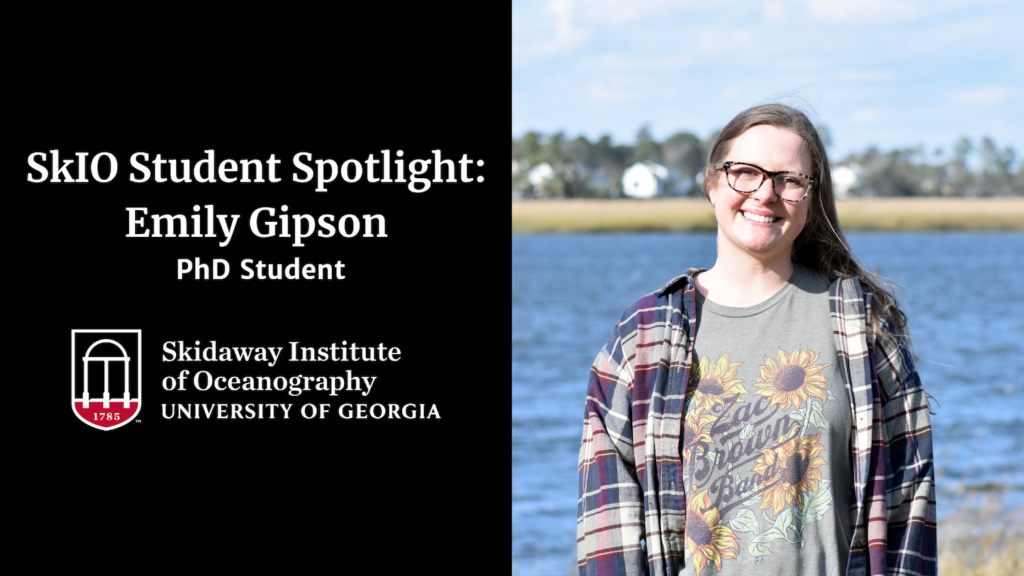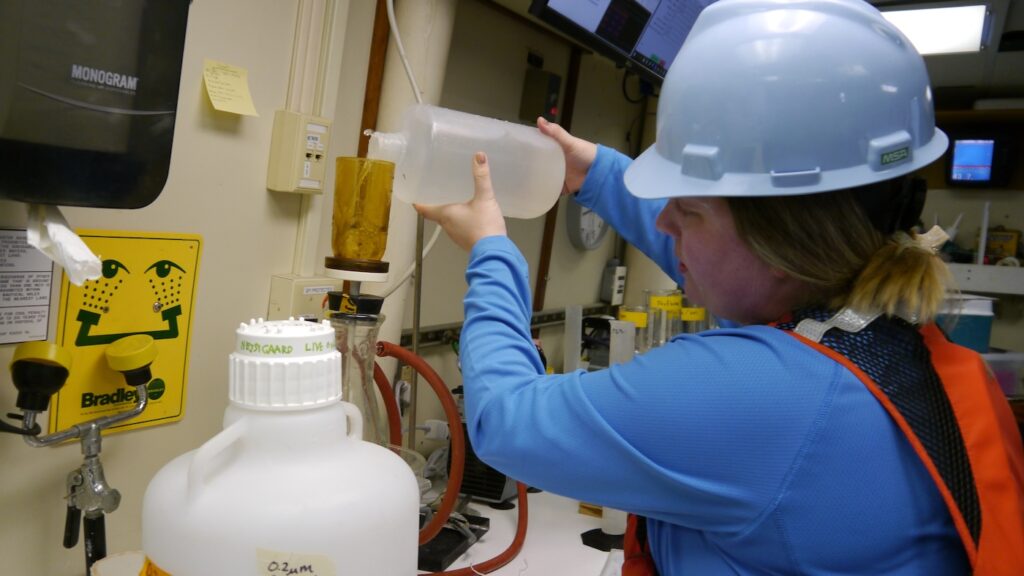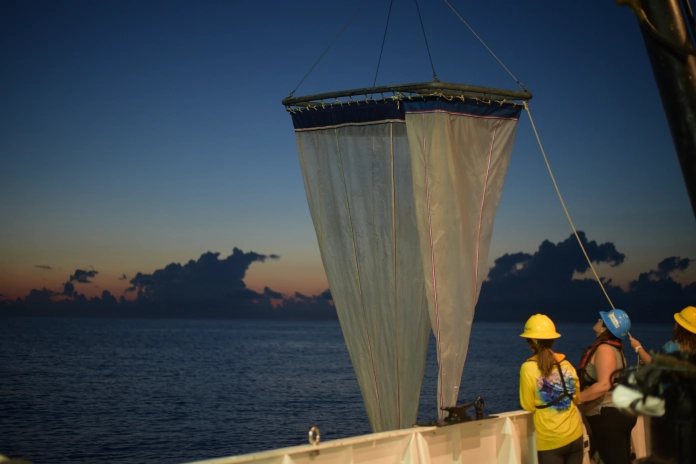
Emily Gipson is a doctoral student working with faculty members Marc Frischer and Jay Brandes in their respective labs at the UGA Skidaway Institute of Oceanography (SkIO). Originally from Winter Haven, FL, Gipson received her bachelor’s degree in biology from the University of Central Florida in 2018 and earned a master’s degree in coastal science with an emphasis in fisheries and fisheries oceanography at the University of Southern Mississippi’s Gulf Coast Research Lab in 2021. At SkIO, Gipson’s research focuses on the role of zooplankton in the food web of the open ocean.
SkIO: What are you researching at SkIO, and who are you working with?
Emily Gipson (EG): I am working with my advisors Marc Frischer and Jay Brandes as well as Adam Greer of the ZERO-C Lab group here at SkIO. My dissertation research focuses on understanding the trophic dynamics of zooplankton in the pelagic food web. Another part of my research focuses on the population genetics of a pelagic tunicate called Dolioletta gegenbauri. I’m interested in quantifying things like levels of inbreeding and the exchange of genetic information between subpopulations.
SkIO: What inspired your love of oceanography and, more specifically, your track of study?
EG: My love of science started as a love of biology. While working on my master’s degree, I had the opportunity to go on a research cruise in the Gulf of Mexico in support of a different project in my lab. It was during this cruise that my interest in oceanography was solidified. My interest in zooplankton developed because I was studying the diet of fishes that primarily fed on zooplankton.

SkIO: Why did you choose UGA/SkIO?
EG: My reasons for choosing SkIO were mostly related to the project I would be working on. I knew that I wanted to get more experience in seagoing oceanography, and this project has provided plenty of those opportunities.
SkIO: Where do you see yourself in 5-10 years?
EG: I plan to finish my PhD and graduate in 2026. After that I will likely spend a few years as a post doc while applying for permanent positions. In 10 years, I would like to be a professor running a small lab and mentoring undergraduate and graduate students.
SkIO: What advice would you give a high school or undergraduate student interested in a similar track? How can they get to where you are?
EG: I would say that you have to work hard and take your studies seriously, but that it’s not supposed to be easy. Finding the work challenging is not a sign that you aren’t capable of doing it. You just have to stay the course. I would also recommend that undergraduates get involved in research at their home institutions and apply for summer research opportunities like REUs.

About SkIO
The UGA Skidaway Institute of Oceanography (SkIO) is a multidisciplinary research and education institution located on Skidaway Island near Savannah, Georgia. The Institute was founded in 1967 with a mission to conduct research in all fields of oceanography. In 2013, SkIO was merged with the University of Georgia. The campus serves as a gateway to coastal and marine environments for programs throughout the University System. The Institute’s primary goals are to further the understanding of marine and environmental processes, conduct leading-edge research on coastal and marine systems, and train tomorrow’s scientists. For more information, visit www.skio.uga.edu.


